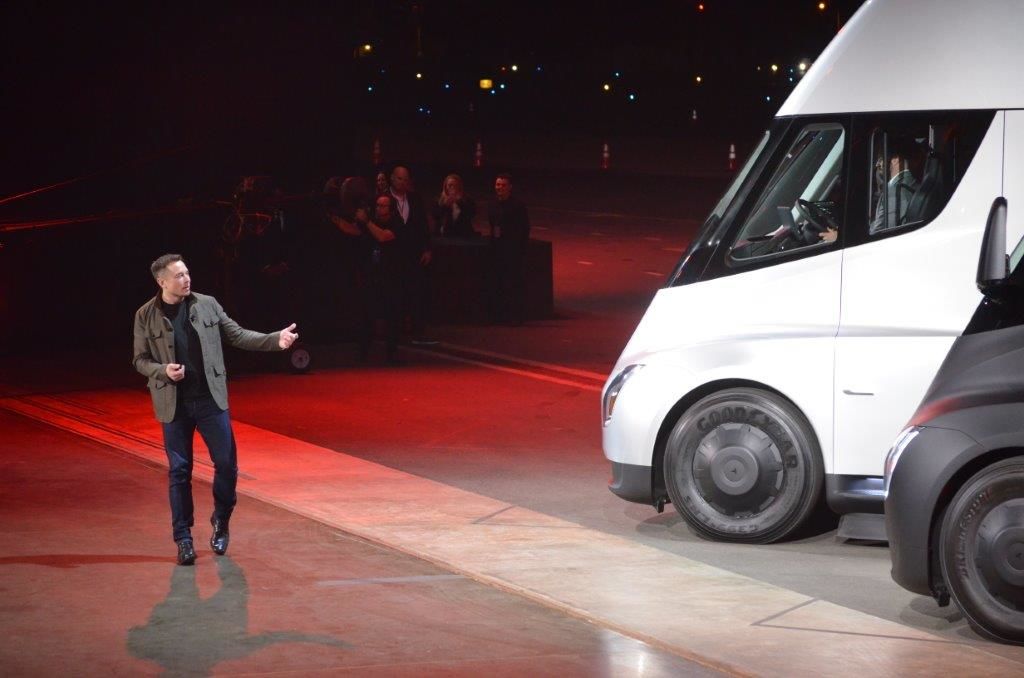
Tesla Inc. handed over the first of its electric Semi trucks, a milestone for the automaker more than five years after it unveiled the vehicle.
“If you want the most badass rig on the road, this is it,” Chief Executive Officer Elon Musk said Thursday at Tesla’s battery factory near Reno, Nevada. He capped off the delivery event with a handover of key cards to two PepsiCo Inc. executives.
While passenger cars get most of the buzz, electrifying big commercial vehicles is crucial to transitioning to more sustainable transportation. Tesla estimates that while combination trucks are just 1% of the US vehicle fleet, they account for 20% of vehicle emissions.
Tesla has designed the Semi around the driver, with a central seating position, room to stand up and ample storage space. The company released footage of a 500-mile (805-kilometer) demonstration run carrying a full load from its plant in Fremont to San Diego on one charge.
To quickly replenish the Semi’s battery, Tesla developed a liquid-cooled cable capable of one-megawatt charging. Musk said the technology coming to the company’s superchargers next year also will be used for the upcoming Cybertruck.
Tesla shares were little changed as of 5 a.m. Friday in New York, before the start of regular trading.
During Tesla’s last earnings call, Musk said the company is aiming to produce 50,000 Semis for North America in 2024. He appears to have taken the product off the back burner after the passing of the Inflation Reduction Act, which makes tax credits of as much as $40,000 available to commercial vehicles. Musk didn’t discuss production volume or pricing Thursday evening.
More from TIME
Large fleet operators like PepsiCo, Walmart Inc., Meijer Inc. and J.B. Hunt Transport Services Inc. were among the companies that placed non-binding reservations for the Semi starting in 2017. The first deliveries are going to PepsiCo’s Frito-Lay plant in Modesto, California.
Tesla will put the Semi to work carrying freight between the company’s factories in Nevada and California so that engineers can continually refine the product, Dan Priestley, the program manager for the truck, said on stage. He thanked customers for sticking with the company through setbacks to the model initially scheduled for production in 2019.
“Sorry for the delay,” Musk said. “The sheer amount of drama between five years ago and now is insane. A lot has happened in the world, but here we are, and it’s real.”
—With assistance from Ed Ludlow.
More Must-Reads from TIME
- Donald Trump Is TIME's 2024 Person of the Year
- Why We Chose Trump as Person of the Year
- Is Intermittent Fasting Good or Bad for You?
- The 100 Must-Read Books of 2024
- The 20 Best Christmas TV Episodes
- Column: If Optimism Feels Ridiculous Now, Try Hope
- The Future of Climate Action Is Trade Policy
- Merle Bombardieri Is Helping People Make the Baby Decision
Contact us at letters@time.com